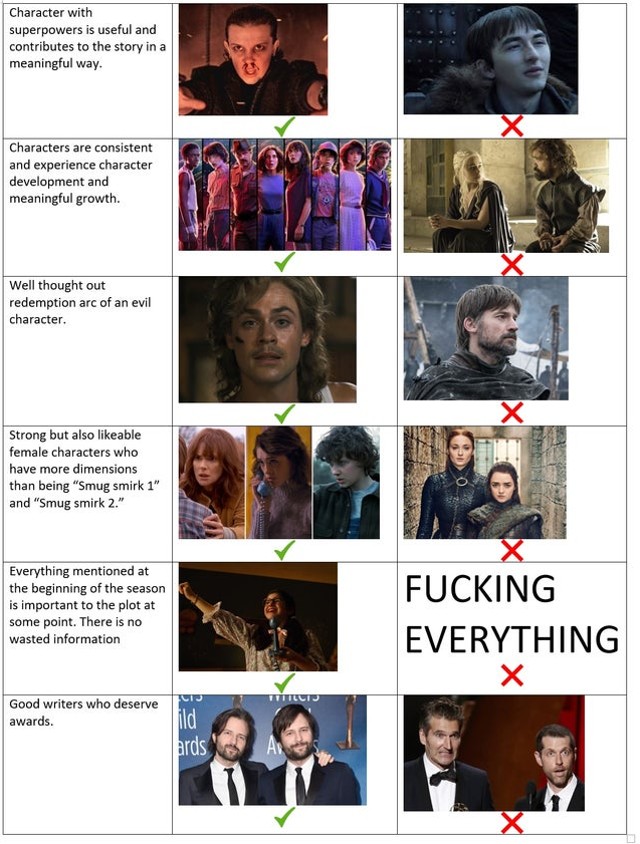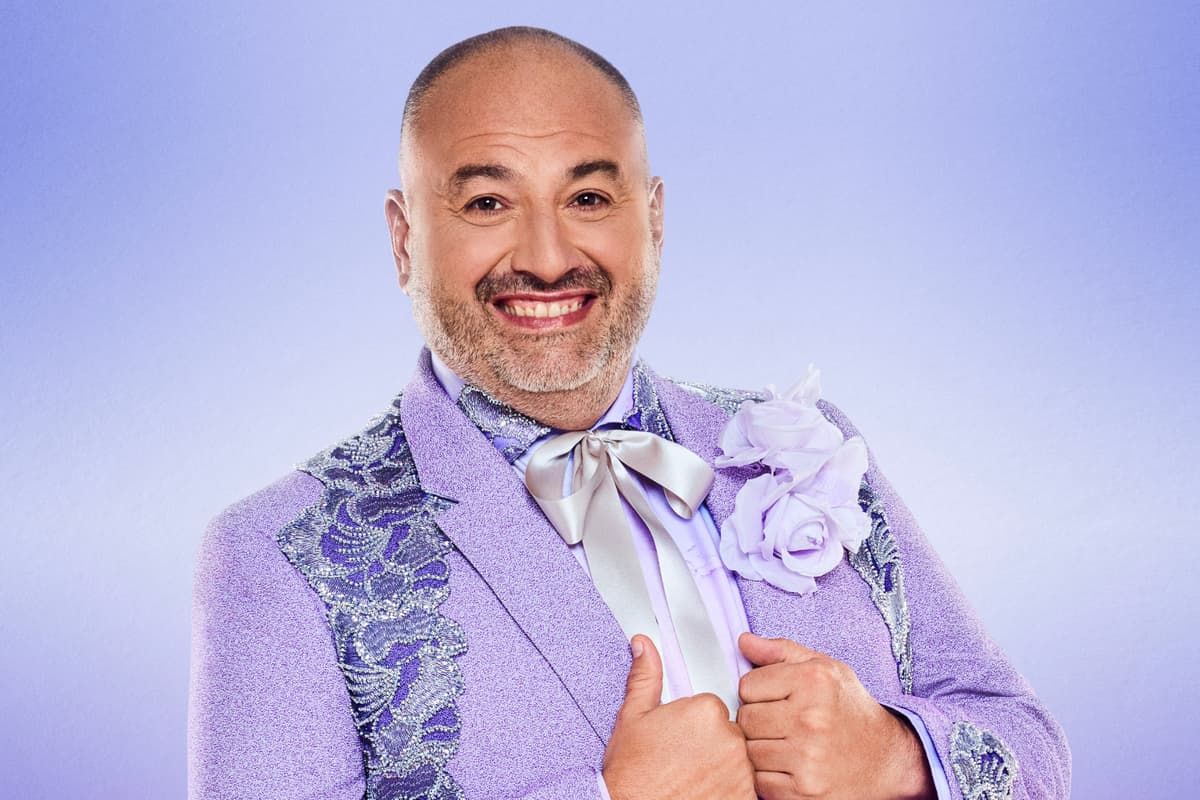Stranger Things Vs. IT: Stephen King Weighs In

Table of Contents
Thematic Echoes: Exploring Shared Narratives
Both Stranger Things and IT resonate deeply due to their exploration of universal themes. At their core, both stories are coming-of-age tales centered on childhood trauma, the power of friendship, and the daunting task of facing seemingly insurmountable evil. These shared narratives create a powerful connection between the two works, even though they differ in many significant ways. Let's examine some key parallels:
-
Loss of Innocence: Both narratives depict the shattering of childhood innocence, forcing the young protagonists to confront terrifying realities that challenge their understanding of the world. In IT, the children face Pennywise, a monstrous entity that preys on their deepest fears. In Stranger Things, the children encounter the terrifying creatures from the Upside Down, a dimension that threatens their very existence.
-
The Power of Friendship: In both stories, the strength of the protagonists' friendships is crucial to their survival. The bonds between the children provide them with the courage and support necessary to overcome their adversaries. The unwavering loyalty and shared experiences forge unbreakable links, turning fear into resilience.
-
Battle Against Evil: Both Stranger Things and IT present a classic battle between good and evil, with children at the forefront of the fight. This struggle extends beyond the physical realm, venturing into the psychological and emotional depths of the characters' experiences. The evil entities they face represent primal fears and societal anxieties, giving the narratives a wider resonance.
Stylistic Influences: King's Legacy on Screen
Stranger Things doesn't merely share thematic similarities with Stephen King's work; it actively draws inspiration from his unique storytelling style. The show's creators have openly acknowledged King's influence, and this is evident in several key aspects:
-
Nostalgic 80s Setting: The show's 1980s setting perfectly mirrors the era frequently used in King's novels, tapping into the specific anxieties and cultural landscape of that time. This nostalgic backdrop adds another layer of depth to the narrative, creating a sense of familiarity and unease.
-
Blend of Genres: Similar to King's works, Stranger Things masterfully blends horror, suspense, and science fiction elements. This fusion creates a unique atmosphere, keeping audiences on the edge of their seats with a constant sense of impending danger.
-
Relatable, Flawed Characters: The characters in Stranger Things, much like those in King's novels, are complex and relatable. They are not perfect heroes but flawed individuals who grow and evolve throughout their experiences, making them more believable and emotionally resonant.
Stephen King's Public Statements: What Has He Said?
While Stephen King hasn't explicitly compared Stranger Things to IT in a single statement, his general comments on adaptations reveal his appreciation for faithful portrayals that capture the essence of his work. He has often praised adaptations that manage to maintain the spirit and thematic core of his books. His positive reception of other adaptations suggests that he likely views Stranger Things' success as a testament to the enduring appeal of the themes and atmosphere he established in his own writing.
Beyond the Similarities: Unique Elements of Each
Despite their shared thematic ground and stylistic echoes, Stranger Things and IT maintain distinct identities. Here's a comparative analysis highlighting their unique elements:
-
Antagonists: Pennywise, the monstrous clown in IT, embodies pure, primal fear, preying on the children's deepest insecurities. The creatures from the Upside Down in Stranger Things are more mysterious and otherworldly, representing a different kind of threat.
-
Narrative Focus: IT centers on the direct confrontation with a single, powerful antagonist. Stranger Things presents a broader, more overarching narrative exploring government conspiracies and the mysteries of a parallel dimension.
-
Explicit Horror: IT leans more heavily into explicit horror elements, while Stranger Things uses a more subtle, atmospheric approach, relying on suspense and implication to build fear.
Conclusion: The Verdict on Stranger Things vs. IT
Both Stranger Things and IT stand as powerful examples of supernatural horror, each demonstrating the enduring appeal of classic themes and storytelling techniques. While Stranger Things clearly draws inspiration from Stephen King's style and thematic explorations, it also carves its own unique path. The similarities highlight the lasting influence of King's work on popular culture, while the differences emphasize the versatility of his underlying themes. What do YOU think? Share your thoughts on the Stranger Things vs. IT debate in the comments below!

Featured Posts
-
 Palantir Stock Before May 5th Is Wall Streets Prediction Accurate
May 10, 2025
Palantir Stock Before May 5th Is Wall Streets Prediction Accurate
May 10, 2025 -
 Should You Buy Palantir Stock In 2024 A 40 Growth Projection Analysis
May 10, 2025
Should You Buy Palantir Stock In 2024 A 40 Growth Projection Analysis
May 10, 2025 -
 Go Compares Wynne Evans Axed After Strictly Come Dancing Scandal
May 10, 2025
Go Compares Wynne Evans Axed After Strictly Come Dancing Scandal
May 10, 2025 -
 Les Ecologistes Et Les Municipales 2026 A Dijon
May 10, 2025
Les Ecologistes Et Les Municipales 2026 A Dijon
May 10, 2025 -
 Perus Emergency Mining Ban Assessing The 200 Million Gold Production Loss
May 10, 2025
Perus Emergency Mining Ban Assessing The 200 Million Gold Production Loss
May 10, 2025
